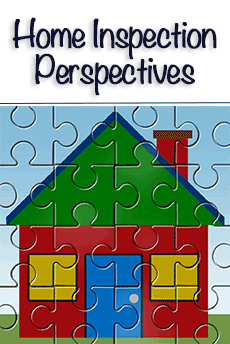 Home inspections are essential if you intend to buy a home. Property inspections are not the easiest of things to understand, and even if you have a home inspection checklist, there might be some confusion about home inspections. You might love the house, but a negative report could mean you are unable to get the mortgage needed for the home. Here are some aspects of real estate inspections from the perspective of those involved in the process.
Home inspections are essential if you intend to buy a home. Property inspections are not the easiest of things to understand, and even if you have a home inspection checklist, there might be some confusion about home inspections. You might love the house, but a negative report could mean you are unable to get the mortgage needed for the home. Here are some aspects of real estate inspections from the perspective of those involved in the process.
The Property Inspector: What Are They Looking For?
As the buyer, you are responsible for arranging the home inspection. You will likely be recommended a property inspector by your lender or real estate agent. Unless you already know of one, you are advised to take their advice. If things are not quite right, the lender and inspector can discuss it and still come up with a solution or you.
Home inspections should involve a close examination of the fabric of the property. This involves examining the roof, basement and structure of the walls. Te inspector will also be looking for signs of wet or dry rot, insect infestation or dampness and water ingress.
You are advised to be with your inspector throughout the examination, to ask questions such as how you can make good any faults found and simply to get to know the hone you are hoping to buy. The inspector is fundamentally looking for structural problems in the roofing, brickwork or stone, foundations and structural woodwork – in other words, what might reduce the effective life of your home.
Your Function in Home Inspections
As suggested above, you should be learning more about your home. You are unlikely to influence the report, but a positive attitude towards problems might influence the lending decision. Make sure you are fully conversant with the property disclosures of the seller, so you can ask the right questions.
Make sure you keep most of the day of the inspection free, so you do not have t rush off during it. You do not know how long it will take, and neither does the inspector until he or she visits your home.
Your Real Estate Agent
Your agent will know what is important and what is not, so make sure they are with you during the inspection. Professional advice will help, and remember that your real estate agent will be on your side – it is they who want your business! By personally seeing any faults, your agent can advise whether to ignore them or to request they be repaid prior to the purchase.
That will depend on the selling process and real value of the home – your agent will have that knowledge. In fact, the true value of your home cannot be evaluated until after the buyer’s inspection. A hone could have a high value decimated if the inspection revealed subsidence or defective foundations.
Each individual involved in home inspections have their own reasons for being there. You and the inspector are musts, and you also advised to have your real estate agent present. Anything unrevealed by the seller that is discovered during your property inspection could be legitimate grounds for reducing your offer. Property inspections are important so do not avoid them.


About The Author: Karengustin
More posts by karengustin